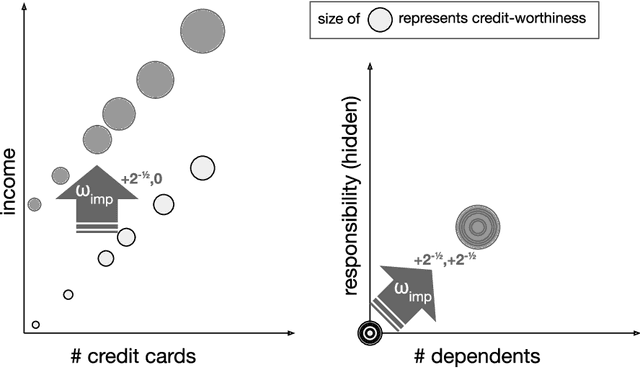Learning From Strategic Agents: Accuracy, Improvement, and Causality
Paper and Code
Feb 24, 2020
In many predictive decision-making scenarios, such as credit scoring and academic testing, a decision-maker must construct a model (predicting some outcome) that accounts for agents' incentives to "game" their features in order to receive better decisions. Whereas the strategic classification literature generally assumes that agents' outcomes are not causally dependent on their features (and thus strategic behavior is a form of lying), we join concurrent work in modeling agents' outcomes as a function of their changeable attributes. Our formulation is the first to incorporate a crucial phenomenon: when agents act to change observable features, they may as a side effect perturb hidden features that causally affect their true outcomes. We consider three distinct desiderata for a decision-maker's model: accurately predicting agents' post-gaming outcomes (accuracy), incentivizing agents to improve these outcomes (improvement), and, in the linear setting, estimating the visible coefficients of the true causal model (causal precision). As our main contribution, we provide the first algorithms for learning accuracy-optimizing, improvement-optimizing, and causal-precision-optimizing linear regression models directly from data, without prior knowledge of agents' possible actions. These algorithms circumvent the hardness result of Miller et al. (2019) by allowing the decision maker to observe agents' responses to a sequence of decision rules, in effect inducing agents to perform causal interventions for free.
 Add to Chrome
Add to Chrome Add to Firefox
Add to Firefox Add to Edge
Add to Edge